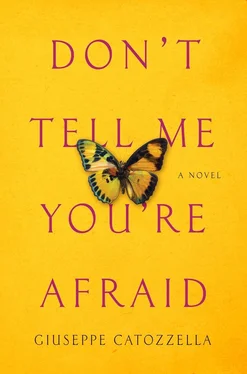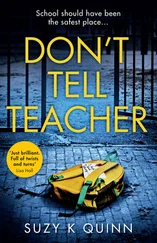“Of course, Grandma Asiya. Don’t worry, I’ll do my best. And I’ll wear the T-shirt during training sessions,” I told her.
“Samia, say hello to China for us and don’t eat any of those strange little fried creatures,” warned Taageere, the lifelong friend of Aabe and Aabe Yassin.
“Okay, Taageere, I’ll only eat fresh fruits and rice,” I reassured him.
And so it went.
Every day at least ten people came to give me their blessing.
When they paid me compliments, though, I tried to make light of it, to minimize it, saying that it was only a race, a competition like any other, nothing all that important.
But in my heart I couldn’t minimize the importance of what I was doing.
I was little but I was also a warrior.
And the little warrior was ready, once again, to fight.

THE EVENING BEFORE I LEFT for China, Hodan called, saying she would soon give birth and was going to the hospital. Maybe that wasn’t a coincidence either but a sign from destiny.
I felt bound to the little creature who was about to come into the world: a strong, vital bond, even though we were so far apart and I had never even seen Hodan’s big belly. It was August 6, 2008.
That news was all it took to make me definitely sleepless. That night I didn’t once close my eyes.
Just the idea of getting on an airplane filled me with anxiety; then too to go so far away, to the Orient, a place I’d barely heard of and that I knew only through stereotypes, scared me to death. I pictured people with yellow skin. And I’d never understood how they could see through those slits they had for eyes. Besides, they must be very swift; it would be like stepping into a crazed anthill. I was afraid. But most of all the race itself scared me. I had run many of them, but never, except for the one in Djibouti, a really important one. I didn’t know what to expect.
What would the other girls be like?
I thought about real athletes, the women I considered my role models, and I felt totally inadequate. I didn’t even have a coach.
I wondered what Abdi was thinking at that moment, in his bed. That morning at the track I saw that he was more agitated than I, or so it seemed. Would I be able to run? Or would I stumble at the first step and be left behind at the starting block, rolling on the ground like a floppy fish in front of TV cameras from around the world? Then I wondered: How many people would see my face? Xassan had told us that nearly a billion people would see us, in all the countries of the world.
A billion was a number I couldn’t even imagine. When I thought of that many people, I thought about the stadium in Djibouti, the stands full of women, men, and children, jubilant and excited about the races. But my imagination stopped there. There must have been thirty thousand people, maybe. But a billion. What stadium could hold a billion people? These were questions that made my head spin. But then my thoughts would take a turn, and each time they would pause at the image of my infant niece who was about to be born and was already kicking in the belly to get out and run. And everything came back to the peaceful calm of familiar, known events.
It would all be over soon. China. The Olympics, that word that made me burst just thinking about it. It would all last no longer than a dream, and then I’d go back home, I would hug Hooyo and my brothers and sisters again, and I would resume running in my beloved, seedy field, as always.
The next morning three of us set off. Abdi and I and the vice president of the Somali Olympic Committee, Duran Farah.
What I had hoped for — that dawn would take away my fears — hadn’t happened. No. The idea of landing in China charged me with adrenaline, but it was everything that came before then that filled me with terror.
The plane didn’t just scare me. It put me in such a state of anxiety that I felt faint. Maybe partly because I hadn’t eaten for days.
When they saw me at the Olympics Committee headquarters, Abdi, Xassan, and Duran Farah asked me if I was sick, if I had caught malaria. I was depleted. They forced me to drink sugar water and an energy drink. My stomach was so shrunken that I had to go to the bathroom to throw up that little bit of fluid.
At the airport the situation worsened rather than improving. I’d never been there before. For me, ever since I was born, airplanes had been dragons that plowed the sky, leaving behind endless white trails. I had never even thought that I might get on one. Let alone get on one at seventeen to go to Beijing.
We made it through the documents checkpoint with special permits that the Olympics Committee had managed to obtain for us with some difficulty. Neither I nor Abdi actually had a passport, since we’d been born during the war. Destined to live confined in our land, thanks to the mortars. Or, alternatively, to confront the Journey.
To our great surprise there was a small gathering of supporters to send us on our way: ten or fifteen in all, wearing the blue headband with the star of Somalia on their foreheads. From a distance we raised our arms; my heart was pounding nervously.
To get through the checkpoint I forced myself to try to appear as healthy as possible. As soon as we got past the officials, however, my legs were shaking so badly that I had to find something to lean on.
As we waited at the gate, I didn’t move from the red velveteen chairs, while Abdi and Duran busied themselves at the Coke and coffee machines. When our flight was called, they looked at each other and nodded. To load me onto the plane, they forced me to swallow a sleeping pill dissolved in a plastic cup from the coffee machine.
I slept as only my infant niece, yet to be born, might sleep: the sleep of the just. Twelve hours straight, after collapsing soon after takeoff. Only the sight of the sea — which appeared unexpectedly below me as the plane cut through the clouds and which from above seemed like a miracle to be embraced — was able to hold off sleep for a few minutes. Then I succumbed to the power of the drug.
All in all, the flight was less difficult than I’d expected.
Upon arrival in Beijing I was beaming. Finally on the ground, everything was back to normal.
The airport was very modern, vast and striking. All glass and steel — you could see your reflection everywhere. The opposite of the one in Mogadishu, which by comparison looked like Taageere’s bar, all wood and corrugated sheet metal. The glass doors opened by themselves, mirroring the image of three figures, two wearing blue track outfits and one in a dark suit, looking ill at ease amid all that technology: elevators, escalators, restaurants with shiny counters, Wi-Fi Internet hot spots, shops selling computers, cameras, and camcorders.
We were moving slowly in the midst of a sea of people who by contrast were almost running; there were all nationalities speaking all languages. We felt inadequate faced with all that speed and modernity.
It was as if we’d come from another geological era. Would everything here be so fast? Even my opponents? And was I really so slow, deep down? Or was it just an impression, would I be like the others on the track? Maybe I carried my country’s lethargy in my bones, and I would never reach their level.
Just outside Beijing’s Capital International Airport we were assailed by an abundance of bodies and smells completely foreign from those I was used to. As if the air were both thicker and sweeter, more humid. As if someone, somewhere, were sprinkling confectioners’ sugar around. It seemed like there was soot everywhere, and a pervasive stench of charcoal came from every corner.
Читать дальше





![Ally Carter - [Gallagher Girls 01] I'd Tell You I Love You But Then I'd Have to Kill You](/books/262179/ally-carter-gallagher-girls-01-i-d-tell-you-i-lo-thumb.webp)







